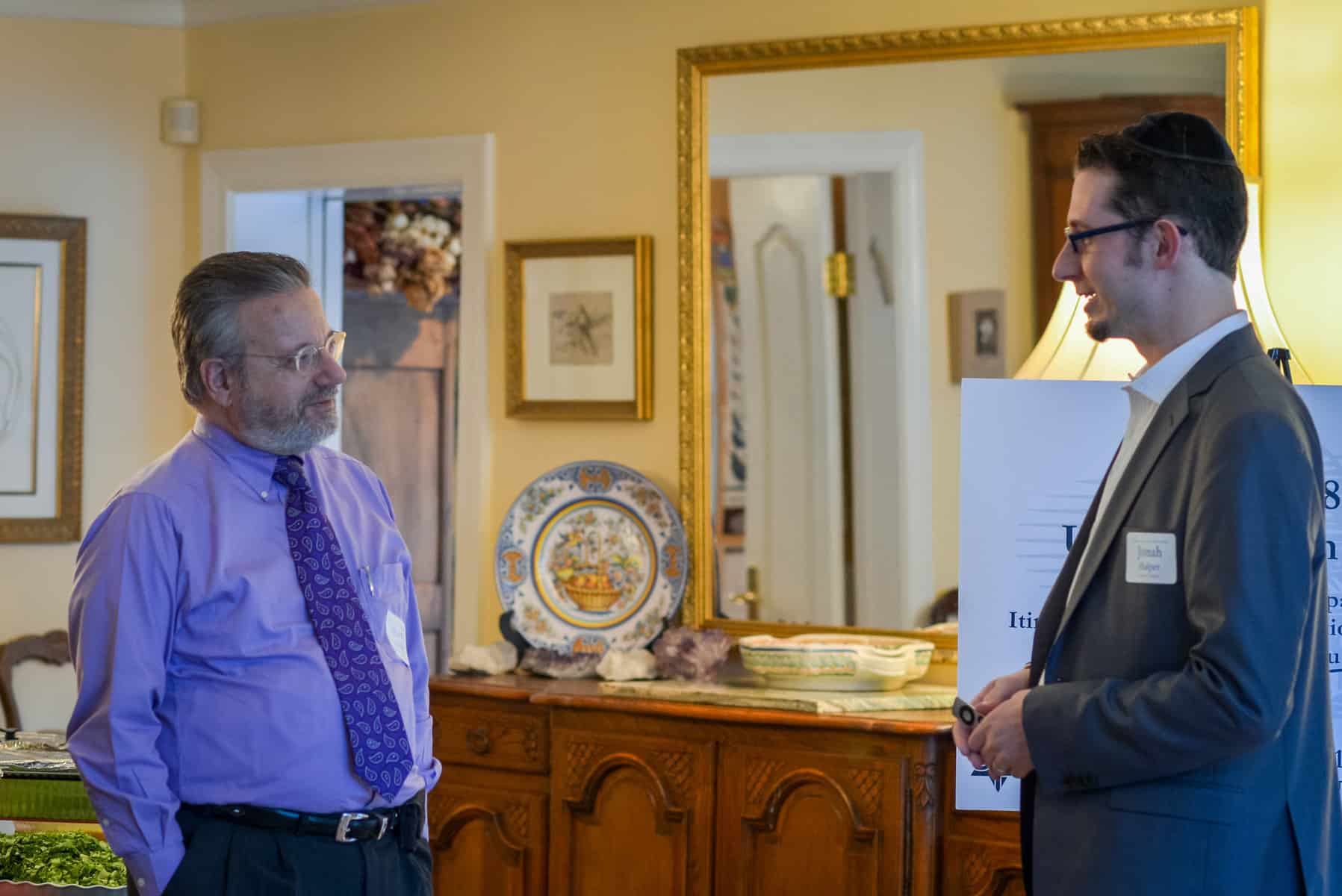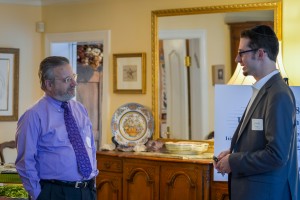“Federation doesn’t have a mission problem… it has an image problem!” So began Jonah Halper, CEO of ALTRUICITY and founder of NextGen:Charity and CharityForum. Halper was the guest trainer at a recent United Jewish Federation of Tidewater’s Campaign Ambassador training workshop, held at the home of Cindy and Ron Kramer.
“Everyone loves Federation,” he explained to the crowd of about 40 participants. “They just don’t know it.” The two-hour workshop was designed to give UJFT’s volunteer solicitors the tools to enable them to show their donors the great work that Federation does—to save and improve Jewish lives and Jewish communities.
Halper gave several examples of non-profits whose messages have resonated with various audiences. His common-sense approach to relationship-based fundraising was well illustrated as he stood before the audience and essentially delivered his resume: “I’m young, active, healthy, energetic, successful… I’m easy-going, great with kids and pets, not cheap but not a spendthrift…” He then approached a participant and asked: “Will you marry me?” Her response was immediate. “No! I don’t even know you.” And that’s the theory behind relationship-based fundraising. An organization cannot simply tell the world how great it is and expect donors to fall in love as a result. The Federation, through its ambassadors, has to get to know its donors and let its donors get to know them. The Federation must learn to “date its donors” (which also happens to be the title of Halper’s next book!).
After separating the audience into five break-out groups, Halper distributed donor case studies, asking the groups to discuss how they might approach particular prospects, given their unique characteristics. Lively discussion ensued, especially between the newer and the more seasoned donors—each giving their generational perspectives. In the end, the groups realized that there was no one way to ask for a campaign commitment, but there are great advantages to knowing as much as possible about one’s donor prospect. That knowledge enables the ambassador to illustrate how the Federation provides the products and services about which the donor feels passionate. Whether services for children, Jewish education, care for the elderly, or any other human service, chances are that the Federation funds one or more of those programs. It becomes the responsibility of the ambassador to know the donor and to know the Federation, to create a meaningful relationship between them.
More than 130 volunteers are committed to working on behalf of the UJFT —asking others to invest in the future of the Jewish community. It’s not always easy to make that ask…but with Halper’s training, a bit of practice, and a donor base that truly does love the Federation (even if they just don’t know it yet), the 2014 campaign promises to be a great success.
by Amy Zelenka
Women’s Campaign Director


